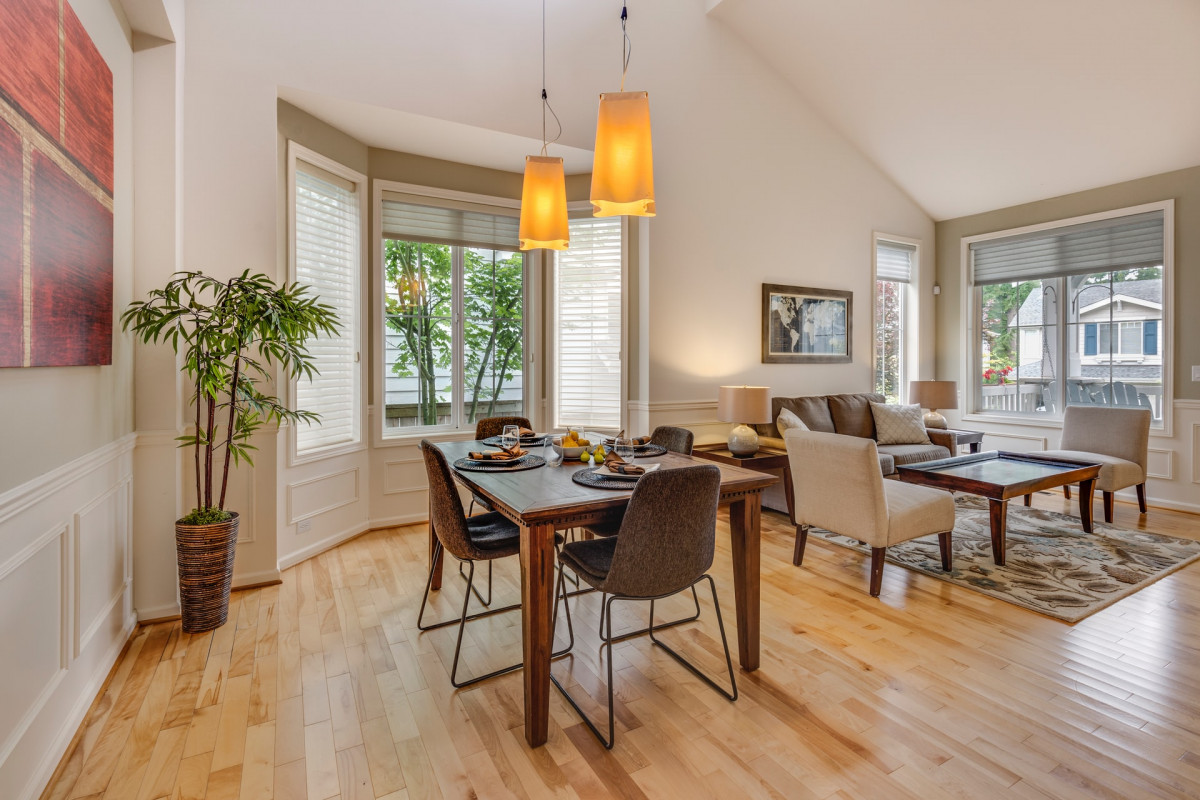
With families seeking refuge at home in these difficult times, they are spending quality time indoors, and nowhere is this more evident than in the living and dining areas that have sprung to life with lively conversations, board games, and TV shows. The pandemic has redefined the sanctity and usefulness of these spaces-and decor and furniture design can significantly impact residents' shared experiences and comfort levels.
Most of us have now spent over a year of our lives primarily confined to our homes. The idea of home has taken on a new meaning as we weather yet another COVID wave, with our residences not only providing us refuge but also accommodating our work spaces, study, and play areas to create a semblance of normalcy.
Also Read | Philpotts Interiors celebrates Hawaiian culture through these hospitality environments
Our pre-pandemic lifestyle was fast-paced; we were invariably on the go, and our common areas were far less inhabited than our private areas. It was only when the health emergency-induced lockdowns assailed us that we hit the pause button as it became apparent that we were going to be cooped up inside for an indefinite period. Communal spaces such as living and dining areas emerged as focal points—to rekindle our relationships with our homes and family members—a space to eat meals together, watch television, play games, and chat. With the need for multi-functional spaces assuming such vital significance, the pandemic has essentially recalibrated homeowners’ definition of what constitutes comfort.
Our lifestyle habits have changed dramatically over the past several months. We discovered that more people started to gravitate to their dining areas than was the case earlier and not just to have meals. The dining table has also emerged as a space for family members to sit and work, read, and play board games. At the centre of these improvisations is homeowners’ desire for safety, convenience, and comfort as opposed to making a grand statement.
Also Read | Holt Renfrew Ogilvy dazzles as a sustainably forward luxury flagship
Space optimization has been a top priority during the lockdown, and homeowners have spent a considerable amount of time sprucing up nooks and corners, creating spaces for rest, rejuvenation, and recreation. With specific regard to living areas, we have observed a massive demand for sofas and lounge chairs that strike a fine balance between ergonomics and durability.
The pandemic has also marked a substantial shift in people’s purchasing habits and facilitated a deep-rooted appreciation for homegrown brands. Owing to the lockdown and supply chain disruptions, furniture buyers who had for long been importing items have been pleasantly surprised by the exceptional quality and international design standards offered by local furniture brands.
Also Read | Marriott Chateau Champlain Hotel
There is a greater emphasis on customization, and the degree of collaboration between clients and designers here is not easy to replicate elsewhere. This has enabled the creation of top-notch, bespoke furniture (which may not necessarily be artisanal or ‘hand-crafted’ products, so to speak) reflecting clients’ aesthetic tastes and preferences and their way of life. Thus, the current shift towards local brands willing to produce custom-made products—that tie in with clients’ needs and perhaps, even transcend their expectations—paints a bright future for the industry.
As more and more people learn the benefits of adopting a conscious and harmonious way of life, it is also incumbent on furniture brands to rethink their processes and serve customers better.

The spokesperson is Sharika Sharma, Business Lead, Mangrove Collective.